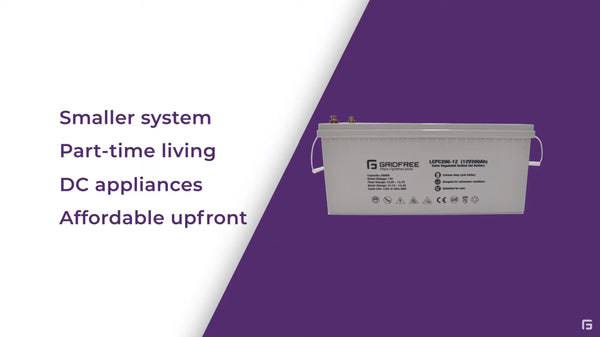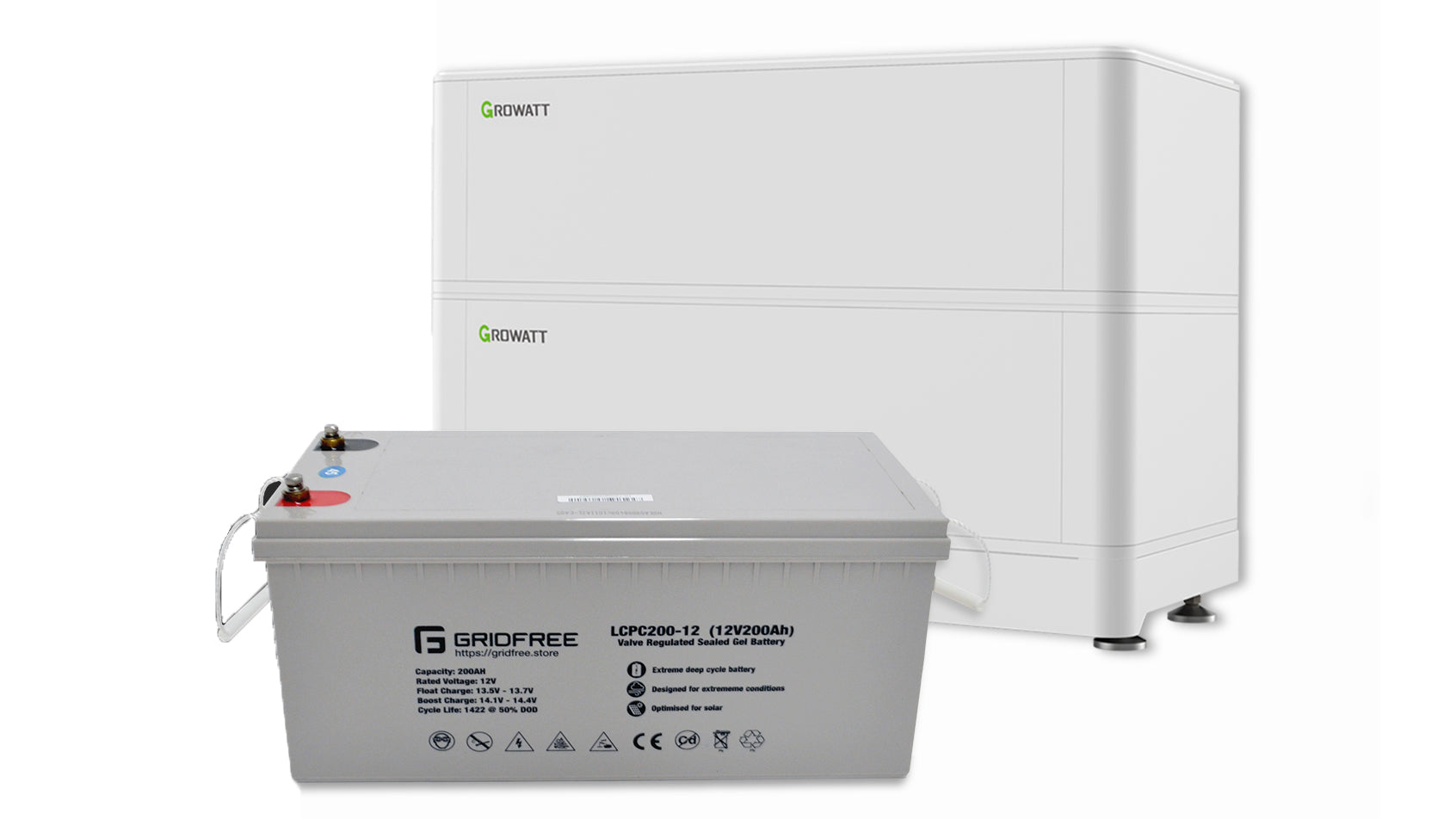When it comes to setting up your own off-grid solar system, the best battery for off grid solar depends on your needs. Learn more about the differences between a Lead Acid Battery and a Lithium Iron battery. We highlight some of the strengths, weaknesses, and ideal uses for each of these batteries below.
Off Grid Solar Battery Types
These are the typical two solutions to the question of how to store all that energy generated by an off grid solar system and each presents a mixture of pros and cons.
Lead Acid Battery
Firstly, with the 12V 200Ah Lead Acid Gel Deep Cycle Battery, we have an affordable workhorse. Designed with a greater Depth of Discharge than most GEL batteries (50%), and a focus on high capacity, this is the best battery for solar energy storage in smaller scale off-grid solar power systems, such as baches and cabins that are used part time. Higher temperature resistance also makes these sealed Lead-Acid batteries the best choice for anyone anticipating extreme weather, with an effective discharge range from -40° C ~60° C.

What is the life expectancy of a lead acid gel battery?
With a lifespan of 3-5 years, depending on the specific battery and usage, this battery has an estimated cycle life of 1422 cycles at 50% D.o.D. This is a very affordable option to use while waiting for other battery options to develop and drop in price.
These batteries need to be kept above 50% DoD for longevity, and will be damaged if left partially charged (less than 100%) for longer than a night or two.
We recommend these if you need to run a 24V system, or want to run 12/24V DC loads (lithium does not allow this), or if you'll only be using the system part time.
Lithium Iron
Lithium-Iron batteries, sometimes called LiFePO4 for their chemical makeup, are a comparably very expensive option. By no means a worse investment, lithium-iron batteries are designed to operate under heavy use, long term, with no maintenance. They make back the initial expense over their much longer 10-15 year lifespan when compared to Lead batteries, making them a more economical choice in the long term. They have a greater usable capacity compared to Gel, down to 80%.

They’re also significantly lighter, making them a great option for weight-sensitive situations, and one lithium battery replaces two gel. They're also a modular system, with each battery stacking up to 10, so they take up less floorspace.
We recommend these if you're looking to run a larger system (as GEL are limited to 12 at once), or if you're living on the system full-time.
Learn more about our Lithium batteries here.
-
What is the best battery for solar energy off-grid?
So what is the best battery for off-grid solar? The best batteries for off grid solar depends on your particular uses as each type of battery outlined above offers strengths and weaknesses. Gel is a great option to start with, but Lithium is our recommendation if your budget allows.
The Gel Deep Cycle battery, as the cheapest option available, is suited to small scale solar operations. These smaller scale systems will avoid overly taxing the lower charge available to these batteries and get the most use out of them in the long run.

However, when the requirements are as high as that of a full time, off-grid residence, Lithium-Iron batteries can become a more economical solution, for their longevity and effective charge.

We offer the GEL batteries as standard in all our kits to ensure they remain an affordable option, though all kits with 4 or more Gel batteries can be upgraded to use our Lithium batteries.


